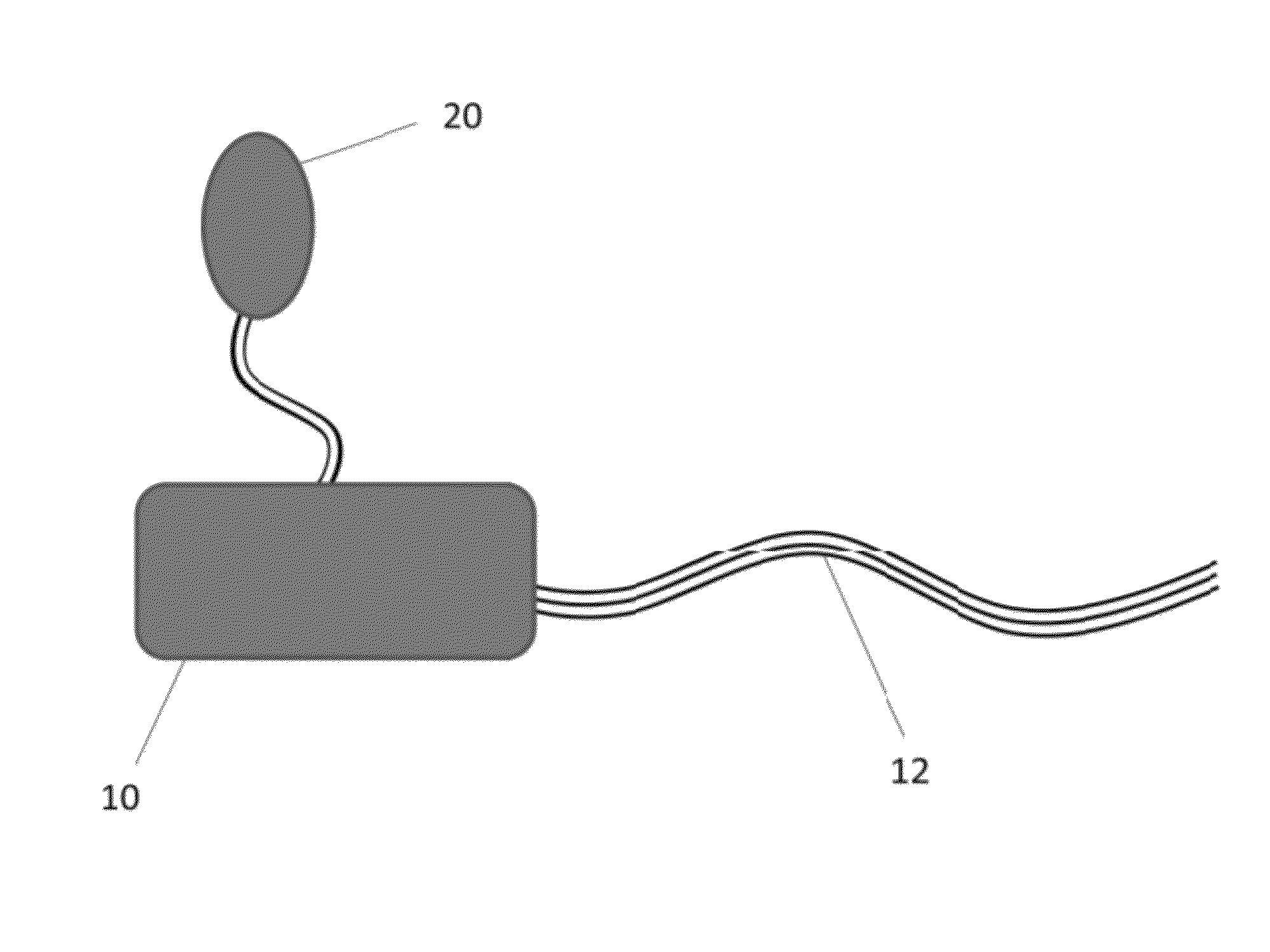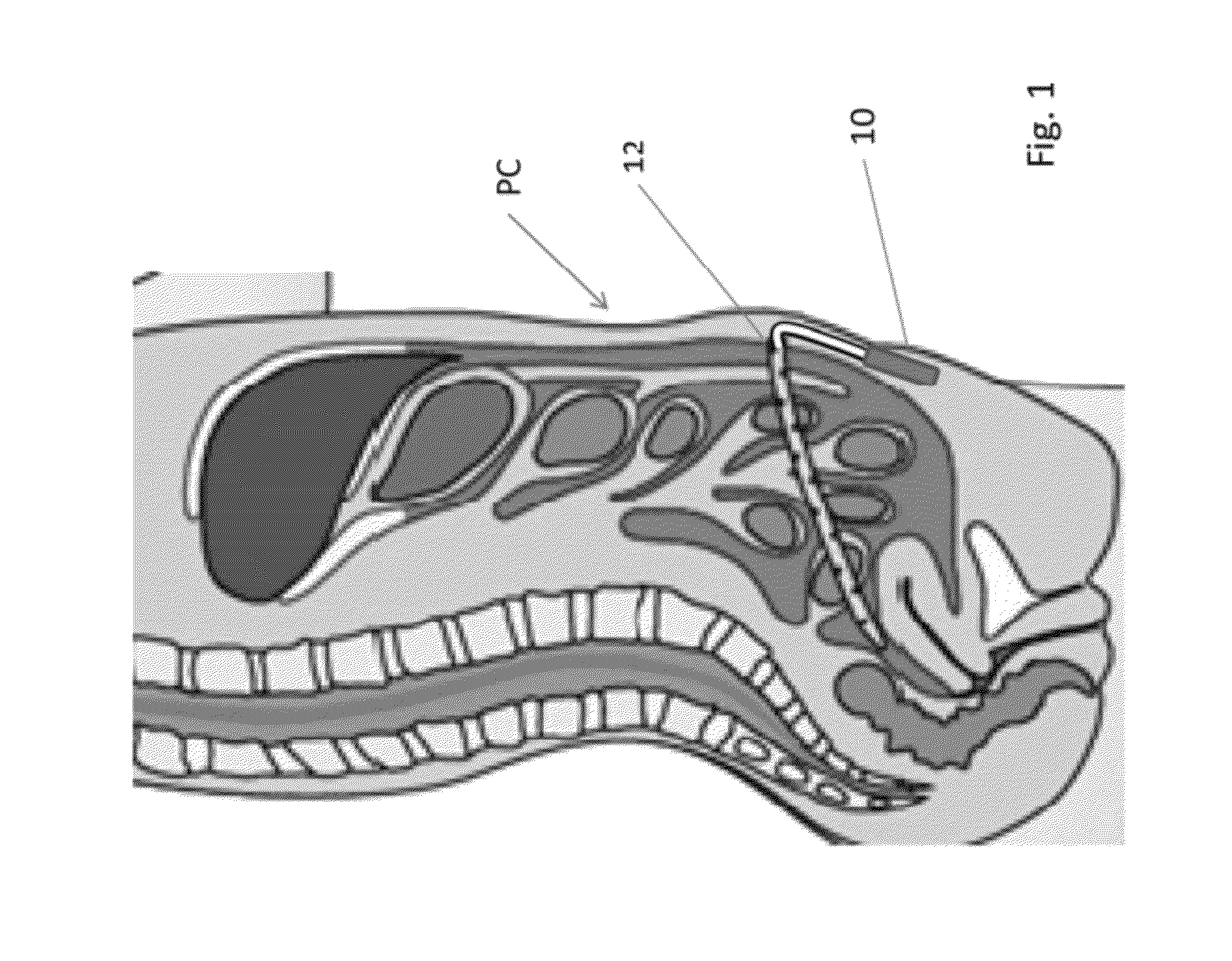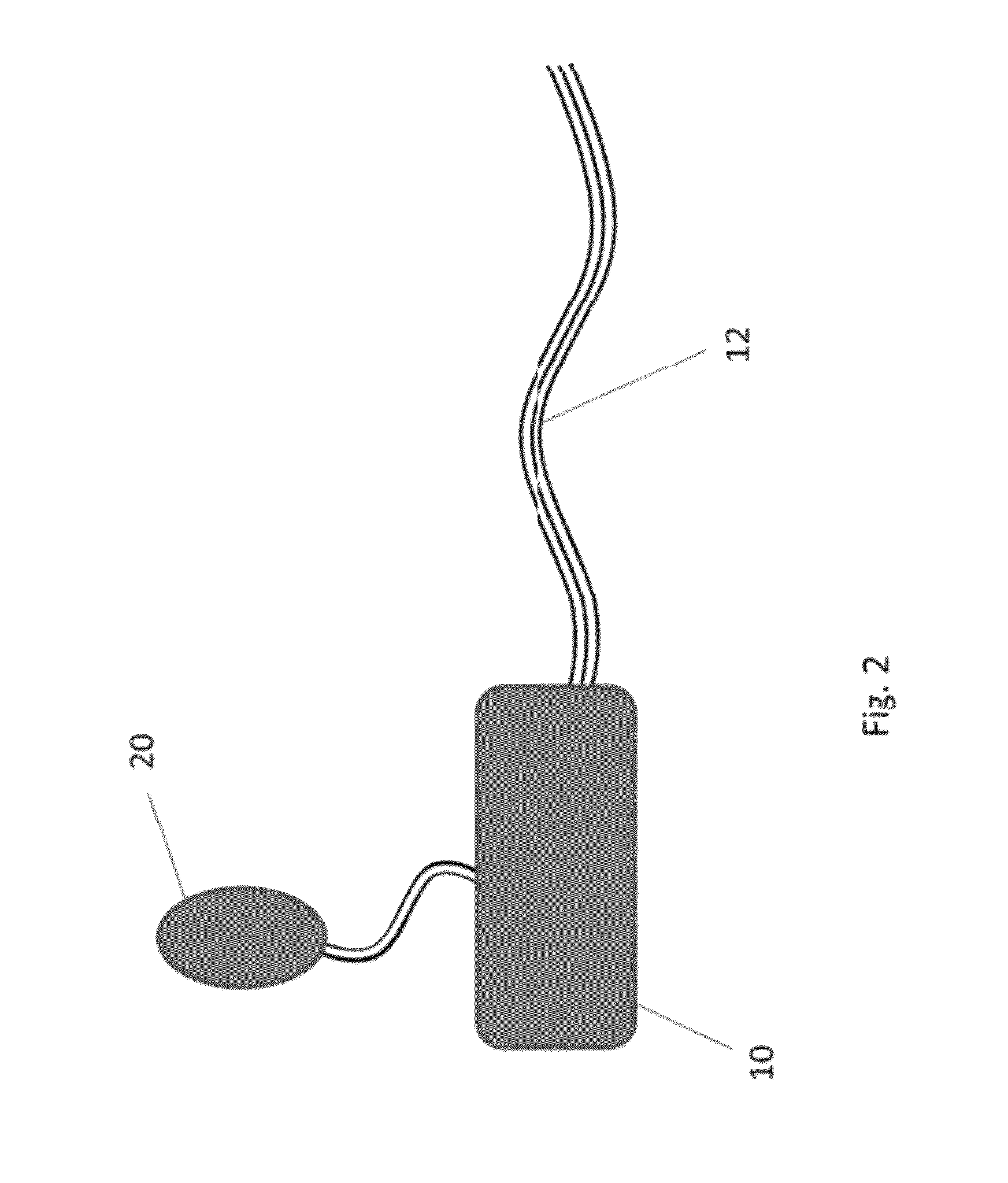Continuous blood glucose monitor
a glucose monitor and continuous technology, applied in the field of continuous biochemical monitoring systems, can solve the problems of non-traumatic amputation and kidney failure, calluses to form, increased risk of warts and infections, etc., and achieve the effect of increasing pressur
- Summary
- Abstract
- Description
- Claims
- Application Information
AI Technical Summary
Benefits of technology
Problems solved by technology
Method used
Image
Examples
Embodiment Construction
[0025]Generally, a device may be implanted subcutaneously with an attached catheter inserted within, e.g., the peritoneal cavity of a subject. Alternatively, the catheter and / or device may be inserted into another space, e.g., subcutaneous, vascular, peritoneal, cerebrospinal, pleural spaces, etc. The subcutaneous implant may also be placed in another cavity in order to simplify sensing. The peritoneal fluid which normally collects and / or flows through the peritoneal cavity may be detected by the catheter and analyzed via the device to detect the concentration of glucose within the fluid.
[0026]The glucose sensor(s) may utilize any one of a variety of modalities including, but not limited to, enzymatic sensors, photometric sensors, mid-infrared and near-infrared wavelength sensors, phophorescent sensors, etc. More than one modality may be employed, as well, to ensure that results are accurate. The protective catheter and / or the sensor may also be replaced as needed or on a schedule. ...
PUM
 Login to View More
Login to View More Abstract
Description
Claims
Application Information
 Login to View More
Login to View More - R&D
- Intellectual Property
- Life Sciences
- Materials
- Tech Scout
- Unparalleled Data Quality
- Higher Quality Content
- 60% Fewer Hallucinations
Browse by: Latest US Patents, China's latest patents, Technical Efficacy Thesaurus, Application Domain, Technology Topic, Popular Technical Reports.
© 2025 PatSnap. All rights reserved.Legal|Privacy policy|Modern Slavery Act Transparency Statement|Sitemap|About US| Contact US: help@patsnap.com



